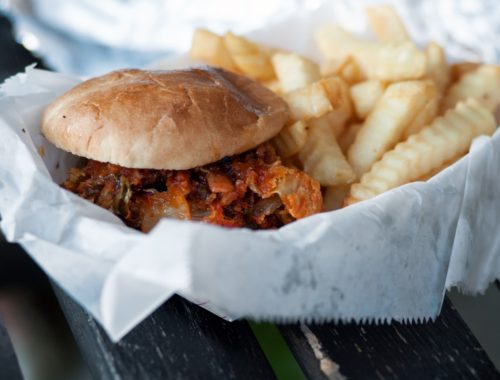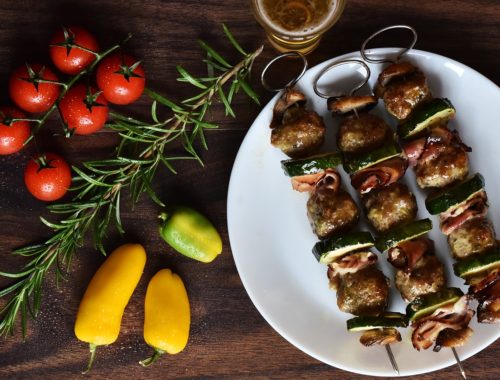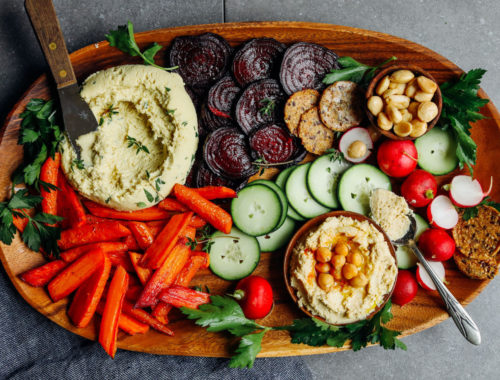Prevent
Which Mediterranean Diet Foods Help Prevent Cancer?
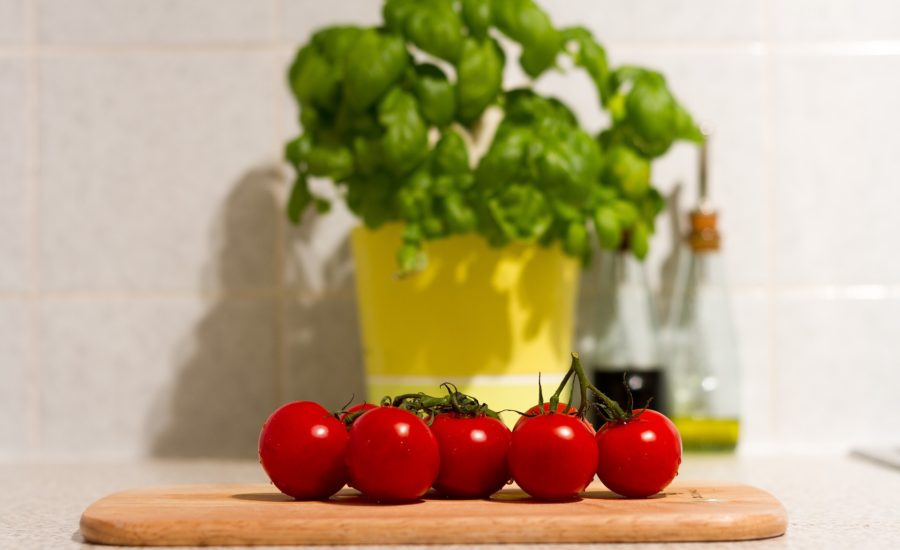
It turns out the secret behind the Mediterranean diet is not just one silver bullet ingredient.
According to new research on the Mediterranean diet and colon cancer, each component provides benefits. And the more features of the diet that are eaten, the greater the health benefits.
The study also found three elements in particular helped prevent advanced colorectal polyps. The best combination was a diet:
- High in fish
- High in fruit
- Limited in soft drinks

What is the Mediterranean Diet?
The Mediterranean diet uses foods eaten in countries that border the Mediterranean Sea.
Though there are many ways to eat a Mediterranean diet, the most common features include:
- A variety of colorful fruits and vegetables
- Unrefined grains/cereals (like multigrain bread, brown rice, and oatmeal)
- Olive oil
- Legumes (like lentils and chickpeas)
- Nuts and seeds
- Lean meats (like fish and poultry)
Unlike a typical Western diet, this diet limits dairy products, red meat, processed meats, and sweets. This makes the Mediterranean diet low in saturated fat and cholesterol, which are known health hazards.
Instead, the Mediterranean diet is high in healthy fats like olive oil (a good source of monounsaturated fat) and fish (polyunsaturated fat). The mix of fruits, vegetables, and whole grains also makes this diet rich in vitamins, fiber, and antioxidants.
In addition to food, Mediterranean cuisine includes a cultural tradition of sharing meals together and serving moderate portions.
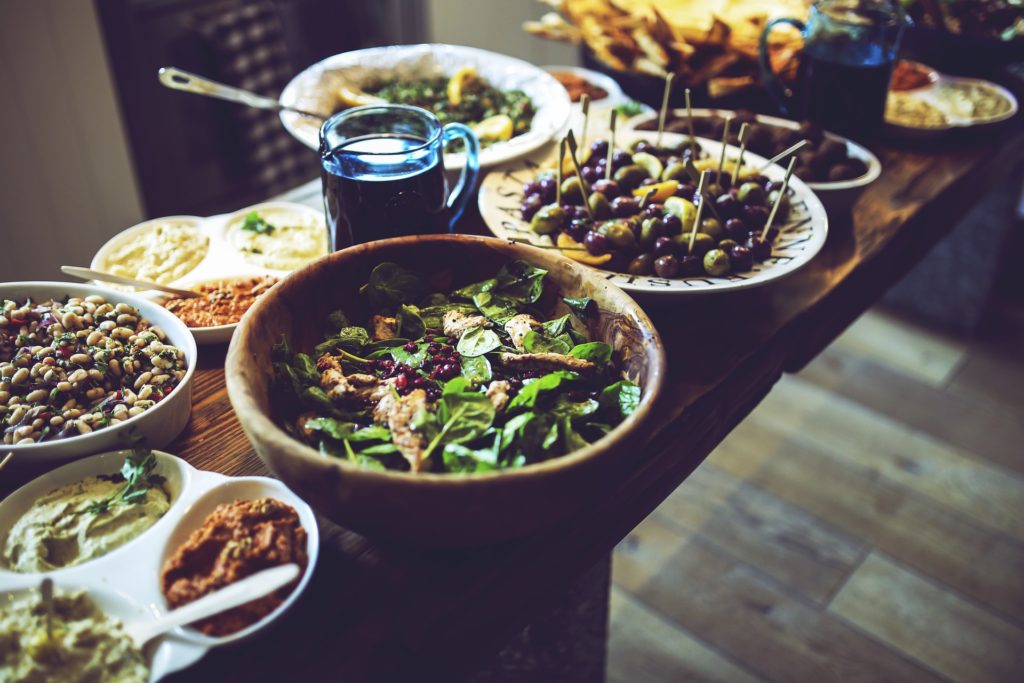
The Mediterranean Diet and Cancer
The study on the Mediterranean diet and colorectal cancer looked at 808 individuals from ages 40 to 70 years without high cancer risk.
The participants answered food questionnaires that asked about how well they followed different parts of the Mediterranean diet. This included features like:
- High use of fruits, vegetables and legumes, nuts and seeds, whole grains, fish and poultry
- A high ratio of healthy fat to saturated fat
- Low use of red meat, alcohol and soft drinks
Participants also underwent a screening for advanced polyps, which can lead to colorectal cancer. The researchers found that individuals who had advanced polyps used fewer components of the Mediterranean diet than those without.
Using just one to four Mediterranean diet features led to half the risk for advanced polyps compared to not using any of the diet. And the more components of the diet a participant stuck with, the lower their risk.
Lastly, after adjusting for other cancer risk factors and dietary components, the researchers found three features had the strongest reduced cancer risk:
- Eating a lot of fruit
- Eating a lot of fish
- Avoiding soft drinks
In other studies, the Mediterranean diet is linked to lower risk for prostate cancer, stomach cancer, and breast cancer.
A Wide Range of Health Benefits
There are several ways the nutrition from a Mediterranean diet supports cancer prevention and good health:
- It avoids the inflammation caused by saturated fat (found in red and processed meat) and sugar
- The foods primarily used improve the microbiome living in the gut that help with digestion.
- It reduces insulin loads and improves glucose levels.
All of these qualities have been shown to reduce the likelihood of cancer, heart disease, diabetes, and other health risks.

Tips for Starting a New Diet
It’s important to keep in mind that the best benefits of the Mediterranean diet come from a variety of foods working together. You can start by slowing adding a few new components to your routine at time.
Fruits and Vegetables
The largest portion of the Mediterranean diet should come from fruits and vegetables.
Tip: The more colors you eat, the more variety of nutrients you get.
Look for:
- Green (broccoli, leafy greens)
- Yellow/Orange (bell peppers, carrots, cantaloupe)
- Red (tomatoes, apples, beets)
- Purple (berries, eggplants)
Healthy Fats
The Mediterranean diet is high in healthy fats like olive oil and nuts (good source of monounsaturated fat) as well as fish (polyunsaturated fat).
Tip: Use olive oil as your go-to choice for cooking.
Proteins
Most of the protein from this diet should come from fish, poultry, and plant-based sources (like legumes and nuts).
Tip: Enjoy lean proteins 3-4 times a week at most, and save red meats like beef and pork for special occasions.
What to Avoid
The benefits of the Mediterranean diet come from the foods it avoids, as well.
Try to cut the following out from your diet as much as possible:
- Sugar (from soft drinks, fruit juice concentrates, candy)
- Refined grains (white bread, pasta made with refined wheat)
- Processed meat (bacon, hot dogs)
Tip: When in doubt, look for the types of unprocessed, single-ingredient foods that you would find in nature.

